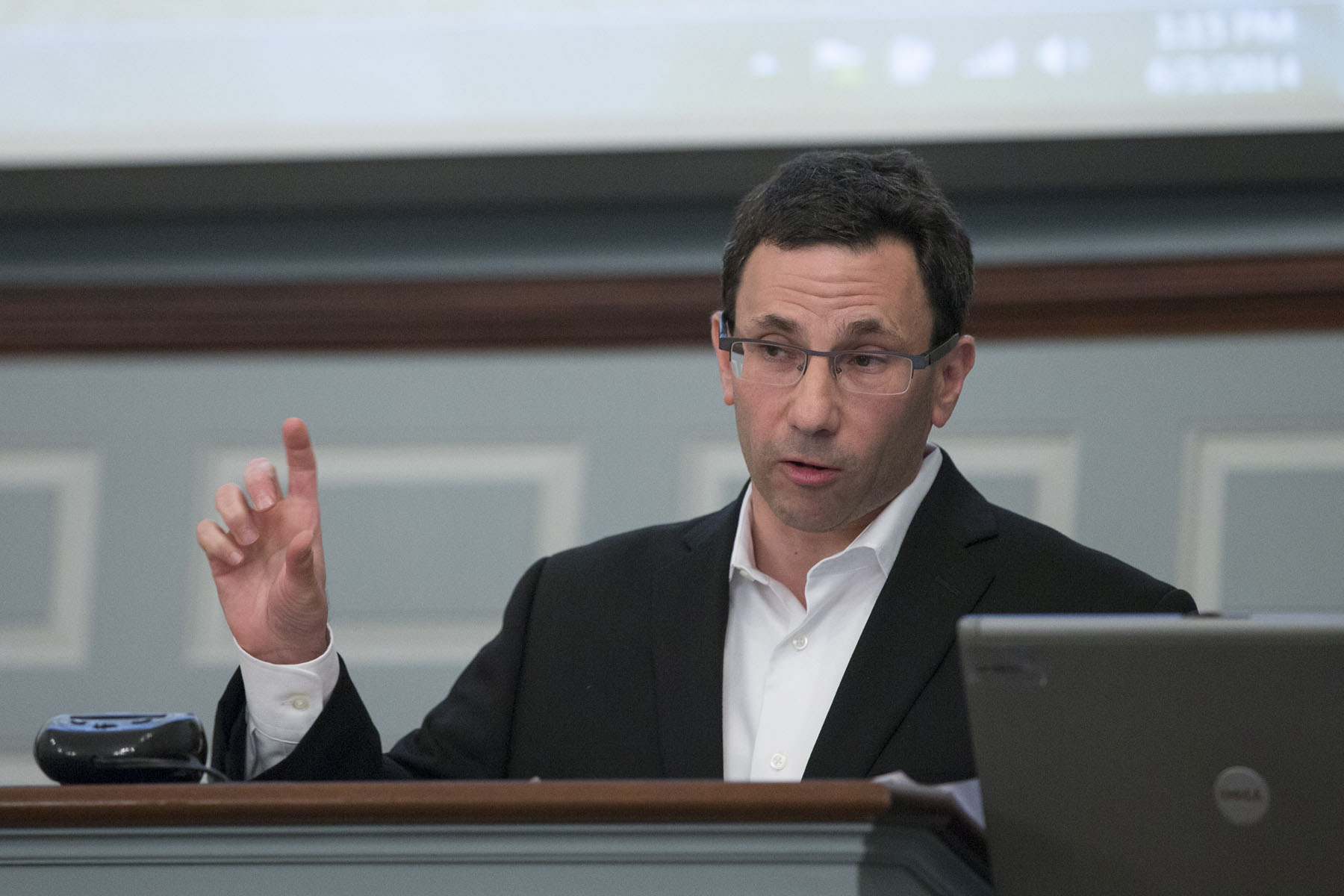In an era of hyper-partisanship and constant gridlock within the U.S. government, how can its leaders best move the country forward?
This central question was explored by preeminent political scientists from across the country during the Leadership in American Politics conference, held Monday and Tuesday at the Miller Center.
Leadership is unquestionably important in the American political landscape, but scholars have struggled with challenges such as defining “leadership” and measuring the value that good leadership can play within a political office.
The conference, a collaboration between the Frank Batten School of Leadership and Public Policy and the Miller Center, aimed to bring scholars together to present their research and discuss the ways in which leadership can be effectively taught and studied. The two-day event was organized by Craig Volden, professor of public policy and politics at the Batten School, and Jeff Jenkins, professor of politics and faculty associate at the Miller Center.
“Americans feel like there’s a gap between leadership and policy challenges facing politicians in Washington,” Volden said. “There’s an array of academic literature about what goes on in politics, but scholars haven’t always been explicit about leadership in their studies. So for this conference, we asked scholars to talk about the political institutions they know best, but also to gear their work toward a better understanding of leadership within those institutions.”
During the conference, prominent scholars at institutions ranging from Princeton University to the University of California, Los Angeles presented papers that discussed the state of academic literature on leadership, while delving more deeply into such specific topics as the House of Representatives under Speaker John Boehner, Harry Reid’s Senate, metropolitan governance, the role of interest groups, state governance and the Obama administration.
During a concluding roundtable discussion on Tuesday, U.Va. Batten School professor Eric Patashnik and Alan Wiseman of Vanderbilt University remarked on challenges facing leadership studies today: defining what leadership means, examining what good leaders do and understanding constraints within the context of political offices that can inhibit transformational leadership. These challenges create a renewed emphasis in academia on the importance of interviews and case studies in revealing broadly applicable lessons for future leaders.
“It’s difficult to study,” Patashnik said. “One common theme in these papers is examining leadership actions, looking at qualities like good communication and decision-making to understand what makes the most effective leaders.”
In an era of voter skepticism and public disaffection with governing institutions, understanding how leaders come to power, how they perform and why their decisions are effective or ineffective are crucial for scholars in places like the Batten School to understand, Wiseman added.
“This conference is a collaborative effort to help enlighten us on what works,” Volden said. “The Miller Center and the Batten School are made stronger by working together, and the discourse will help us develop the way we understand and teach leadership to our students.”
Volden and Jenkins plan to use the papers presented in the conference to develop a scholarly text to aid in research and in teaching best practices to students interested in leadership.
Media Contact
Article Information
June 4, 2014
/content/scholars-grapple-role-leadership-us-politics

